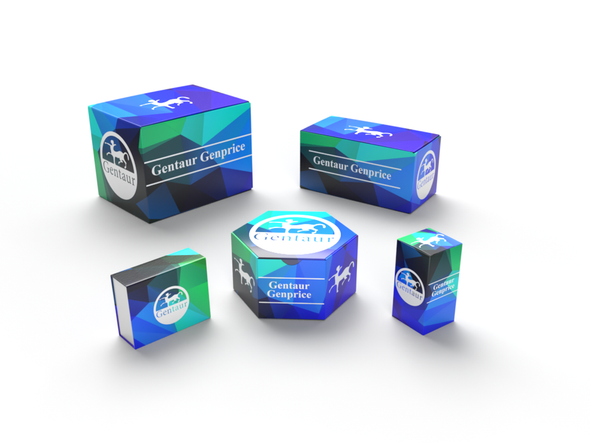Description
Goat Anti-Human RANKL Antibody | 102-P205G | Gentaur UK, US & Europe Distribution
Species: Anti-Human
Host / biotech: Goat
Comment: N/A
Label: N/A
Clone / Antibody feature: Goat IgG
Subcategory: Polyclonal Antibody
Category: Antibody
Synonyms: TNFSF11; ODF; OPGL; sOdf; CD254; OPTB2; RANKL; TRANCE; hRANKL2
Isotype: N/A
Application: ELISA, WB
Detection Range: N/A
Species Reactivity/Cross reactivity: Human
Antigen: Recombinant Human RANKL
Description: RANK Ligand (receptor activator of NFκB ligand [RANKL] , also called TNFrelated activation induced cytokines (TRANCE), osteoprotegerin ligand [OPGL] , and osteoclast differentiation factor [ODF] ), is a member of the tumor necrosis factor (TNF) family. RANK Ligand was originally identified as an immediate early gene upregulated by T cell receptor stimulation. The human RANK Ligand cDNA encodes a type II transmembrane protein of 317 amino acids with a predicted cytoplasmic domain of 47 amino acids, a 21 amino acids transmembrane region, and an extracellular domain of 249 amino acids. The extracellular domain contains two potential Nlinked glycosylation sites. Mouse and human RANK Ligand share 85% amino acid identity. RANK Ligand is primarily expressed in T cells and T cell rich organs, such as thymus and lymph nodes. The multifunctions of RANK Ligand include induction of activation of the cjun N terminal kinase, enhancement of T cell growth and dendritic cell function, induction of osteoclastogenesis, and lymph node organogenesis. RANK is the cell surface signaling receptor of RANK Ligand. RANK has been shown to undergo receptor clustering during signal transduction. Osteoprotegerin, a soluble member of the TNF receptor family which binds RANK Ligand, is a naturally occurring decoy receptor that counterbalances the effects of RANK Ligand.
Purity Confirmation: N/A
Endotoxin: N/A
Formulation: lyophilized from PBS
Storage Handling Stability: The lyophilized antibody is stable for at least 2 years from date of receipt at -20°C. The reconstituted antibody is stable for at least two weeks at 2-8°C. Frozen aliquots are stable for at least 6 months when stored at -20°C.
Reconstituation: Centrifuge vial prior to opening. Reconstitute in sterile water to a concentration of 0.1-1.0 mg/ml.
Molecular Weight: N/A
Lenght (aa): N/A
Protein Sequence: N/A
NCBI Gene ID: 8600






